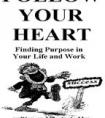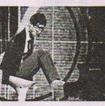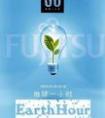短文填空。(每空2分,共16分)根据下面短文内容,在短文的空格处填上一个恰当的词,使短文完整、通顺。Peter was the best table tennis player in his school and hardly ev-九年级英语
题文
| 短文填空。(每空2分,共16分)根据下面短文内容,在短文的空格处填上一个恰当的词,使短文完整、通顺。 Peter was the best table tennis player in his school and hardly ever lost a match. He hated losing anything. When he 小题1: ,he would feel really good. If he lost, he would feel terrible. It seemed to Peter that losing was the 小题2: thing in the world . A new kid, Albert, came to Peter’s school .He was good at table tennis, too. Soon there would be a match 小题3: Peter and Albert. Peter worked hard to get ready for the match, but Albert didn’t seem to think 小题4: of it. When the match began, Albert was a real player. There was always a 小题5: on his face, while Peter looked serious all the time. Peter thought it was so important to win the match that he even wanted to cheat(舞弊) , but he lost in the end. “ You played very well, Peter. I think we can play again sometime, ”said Albert. But Peter didn’t 小题6: happy and couldn’t fall asleep that night . One day, Peter saw Albert playing basketball. 小题7: he lost again and again, the happy smile never left his face. Peter found Albert was great at table tennis but bad at basketball. However, he enjoyed 小题8: of them. Whether he won or lost the game, Albert enjoyed it. Peter came to realize that enjoying a game was much more important than winning or losing it. He felt happier than ever before. |
答案
小题1:won 小题2:worst 小题3:between 小题4:much 小题5:smile 小题6:feel 小题7:Though 小题8:both |
| 这篇短文中主要介绍了彼得喜欢打乒乓球,但是好胜心特别强,只有一输掉比赛就感到不高兴。左后他从阿尔伯特身上学到了比赛对于他的真实意义,变得比以前高兴起来。 小题1:联系上下文,可知此处指的是当他获胜时,结合语境可知本句描述的是过去发生的动作,故用一般过去时态。结合语境可知填过去式动词won,获胜。 小题2:联系前文描述,可知此处指的是,失败对于他来说是最糟糕的的事情。结合语境可知填形容词最高级worst最坏的,作定语。 小题3:联系下文,可知此处指的是在彼得和阿尔伯特之间有一场比赛。故填介词between在……之间。 小题4:联系前半句描述,及转折连词but,可知此处指的是阿尔伯特不怎么在意。故填much许多,大量。 小题5:联系后一句描述,可知此处指的是他的脸上总是带着微笑。故填单数名词smile,微笑。 小题6:结合语境可知此处指的是彼得感到不高兴。前文已有助动词did,故填原形动词feel,感觉。 小题7:联系上下文描述,可知此处指的是尽管他输了一次又一次,他的脸上总是带着微笑。故填转折连词Though,虽然,尽管。 小题8: |
据专家权威分析,试题“短文填空。(每空2分,共16分)根据下面短文内容,在短文的空格处填..”主要考查你对 物主代词,单词、词组 等考点的理解。关于这些考点的“档案”如下:
物主代词单词、词组
考点名称:物主代词
- 物主代词:
表示所有关系的代词叫做物主代词,也叫人称代词的所有格。
物主代词分为形容词性物主代词和名词性物主代词两种。
物主代词有人称和数的变化。第三人称单数的物主代词还有性别的变化。 物主代词的用法:
物主代词既有表示所属的作用又有指代作用,例如:
John had cut his finger; apparently there was a broken glass on his desk.
约翰割破了手指,显而易见,他桌子上有个破碎的玻璃杯。
物主代词有形容词性(my, your等)和名词性(mine, yours等)两种:
形容词性的物主代词属于限定词。
名词性的物主代词在用法上相当于省略了中心名词的 -'s属格结构,例如:
Jack's cap 意为 The cap is Jack's.
His cap 意为 The cap is his.形容词性物主代词用法:
1. 形容词性物主代词相当于形容词,在句中只能用作定语,后面必须跟名词。名词性物主代词常用来避免和前面已提及的名词重复。
相当于【形容词性物主代词+名词】。例如:
Is that yourbike? 那是你的自行车吗?
My pen is quite different from his.
2. 如果名词前用了形容词性物主代词,就不能再用冠词(a, an, the)、指示代词(this, that, these, those)等修饰词了。例如:
这是他的书桌。This is his desk.
3. 与形容词一起修饰名词时,形容词性物主代词要放在形容词的前面。例如:
his English books他的英语书。
their Chinese friends他们的中国朋友。
4. 汉语中经常会出现"我妈妈","你们老师"等这样的语言现象,虽然代词用的是"我"、"你们",但实际意义仍是"我的"、"你们的",
所以在英译时,注意要用形容词性物主代词"my","your"。
例如:你妈妈在家吗?
误:Is you mother at home?
正:Is yourmother at home?
5. it's与its读音相同,he's与his读音相似,但使用时需注意它们的区别(it's和he's分别是it is和he is的缩略形式,但its 和his 却是形容词性物主代词) 。
例如: It's a bird. Its name is Polly. 它是一只鸟。它的名字叫波利。
He's a student. His mother is a teacher. 他是一名学生。他妈妈是一位教师
口诀:
有“名”则"形“,无“名”则“名”。
意思是:后面是名词的话,前面就要用 形容词性物主代词。后面没有名词的话,就用名词性物主代词。名词性物主代词的句法功能:
a. 作主语,例如:
May I use your pen? Yours works better.
我可以用一用你的钢笔吗? 你的比我的好用。
b.作宾语,例如:
I love my motherland as much as you love yours.
我爱我的祖国就像你爱你的祖国一样深。
c.作介词宾语,例如:
You should interpret what I said in my sense of the word, not in yours.
你应当按我所用的词义去解释我说的话,而不能按你自己的意义去解释。
d.作主语补语,例如:
The life I have is yours. It's yours. It's yours. 我的生命属于你,属于你,属于你。
名词性物主代词可以用在介词of的后面,相当于“of+名词所有格”。
口诀
有“名”则"形“,无“名”则“名”。
注:
后面是名词的话,前面就要用 形容词性物主代词。
后面没有名词的话,就用名词性物主代词.形容词性物主代词与名词性物主代词的区别:
一.形容词性物主代词起形容词的作用,用在名词前。
例:
1. This is my book.这是我的书。
2. We love our motherland.我们热爱我们的祖国。
二.名词性物主代词起名词的作用。
例:
1. Look at the two pencils. The red one is yours and the blue one is mine.
看那两支铅笔,红的是你的,蓝的是我的。
2. He likes my pen. He doesn't like hers.
他喜欢我的钢笔。不喜欢她的。
3. 注意:在使用名词性物主代词时,必须有特定的语言环境,也就是要省略的名词。
例:
It's hers.是她的。
(单独使用大家不知是怎么回事,不可以这样用)
- 最新内容
- 相关内容
- 网友推荐
- 图文推荐
| [家长教育] 孩子为什么会和父母感情疏离? (2019-07-14) |
| [教师分享] 给远方姐姐的一封信 (2018-11-07) |
| [教师分享] 伸缩门 (2018-11-07) |
| [教师分享] 回家乡 (2018-11-07) |
| [教师分享] 是风味也是人间 (2018-11-07) |
| [教师分享] 一句格言的启示 (2018-11-07) |
| [教师分享] 无规矩不成方圆 (2018-11-07) |
| [教师分享] 第十届全国教育名家论坛有感(二) (2018-11-07) |
| [教师分享] 贪玩的小狗 (2018-11-07) |
| [教师分享] 未命名文章 (2018-11-07) |


![—______ is Jenny.—I’m Gina. Nice to meet you.[ ]A. I’mB. His nameC. I’mD. My name-七年级英语](http://www.00-edu.com/d/file/ks/4/2/wuzhudaici/2019-11-29/small48b153aa794daeb090c5d2505d5cbbac1575042450.png)



